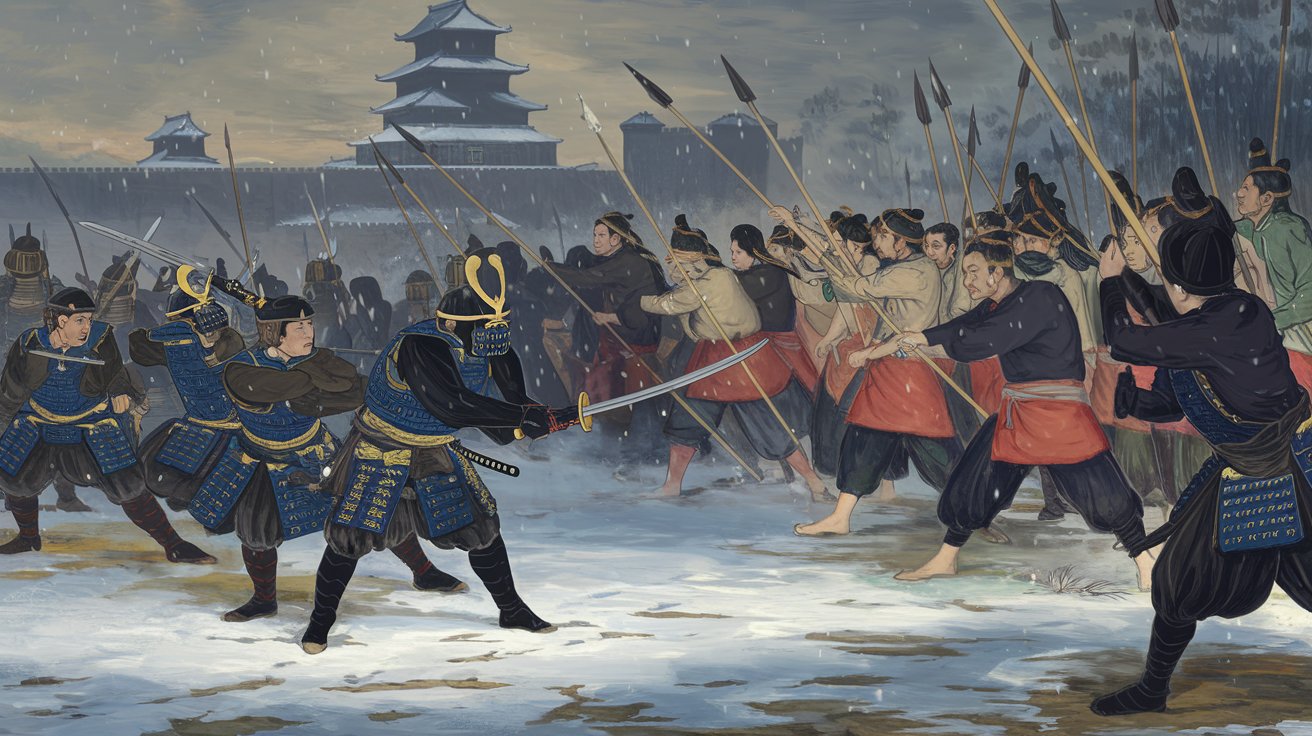
Lofthuus' Rebellion was a significant uprising in Norway during the late 18th century. Sparked by economic hardship and oppressive taxes, this revolt saw farmers and common folk band together against the ruling authorities. But what exactly happened during this tumultuous period? In this blog post, we'll delve into 25 intriguing facts about Lofthuus' Rebellion, shedding light on the key events, figures, and outcomes that shaped this historical moment. From the motivations behind the uprising to its lasting impact on Norwegian society, these facts will provide a comprehensive overview of one of Norway's most notable rebellions. Get ready to journey through history and uncover the story behind Lofthuus' Rebellion!
Key Takeaways:
- Lofthuus' Rebellion was a farmers' uprising in late 18th century Norway, led by Christian Lofthuus. It sparked changes in governance and inspired future resistance movements.
- The rebellion's legacy lives on through monuments, literature, and its impact on Norwegian culture. Lofthuus is remembered as a folk hero, and the rebellion is taught in schools.
The Origins of Lofthuus' Rebellion
Lofthuus' Rebellion, a significant event in Norwegian history, was a farmers' uprising in the late 18th century. Let's delve into some fascinating facts about this rebellion.
-
The rebellion began in 1786: Farmers in Norway were frustrated with high taxes and oppressive government policies.
-
Christian Lofthuus led the rebellion: A charismatic leader, Lofthuus rallied the farmers to stand against the authorities.
-
Economic hardship fueled the unrest: Poor harvests and economic downturns made life difficult for Norwegian farmers.
-
The rebellion spread quickly: Starting in the Agder region, it soon spread to other parts of southern Norway.
Key Events During the Rebellion
Several pivotal events marked the course of Lofthuus' Rebellion. These moments defined the struggle and its impact on Norwegian society.
-
The first major protest occurred in Kristiansand: Farmers gathered to voice their grievances to local officials.
-
A significant clash happened in Arendal: Protesters confronted government forces, leading to violent skirmishes.
-
Lofthuus was arrested in 1787: His capture was a major blow to the rebellion's momentum.
-
Farmers continued to resist: Even after Lofthuus' arrest, many farmers kept fighting against the authorities.
The Aftermath of the Rebellion
The rebellion's end didn't mean the end of its impact. The aftermath brought significant changes to Norwegian society and governance.
-
Lofthuus was sentenced to life imprisonment: He spent the rest of his life in Akershus Fortress.
-
The government reformed tax policies: In response to the rebellion, authorities made some concessions to ease the farmers' burdens.
-
The rebellion inspired future movements: Lofthuus' actions set a precedent for future resistance against oppressive policies.
-
Historians view the rebellion as a turning point: It highlighted the need for better governance and fairer treatment of farmers.
The Legacy of Lofthuus' Rebellion
Lofthuus' Rebellion left a lasting legacy in Norway. Its impact can still be felt in various aspects of Norwegian culture and history.
-
Lofthuus is remembered as a folk hero: Many Norwegians see him as a symbol of resistance and courage.
-
The rebellion is taught in Norwegian schools: It's an important part of the national curriculum, emphasizing the struggle for justice.
-
Monuments and memorials honor the rebels: Various sites in Norway commemorate the rebellion and its leaders.
-
The rebellion influenced Norwegian literature: Writers and poets have drawn inspiration from the events and characters of the rebellion.
Interesting Tidbits About the Rebellion
Beyond the major events and outcomes, there are many intriguing details about Lofthuus' Rebellion that add depth to its story.
-
Lofthuus was a skilled orator: His speeches were instrumental in rallying the farmers to the cause.
-
Women played a role in the rebellion: Many women supported the movement, providing supplies and moral support.
-
The rebellion had international attention: News of the uprising reached other parts of Europe, highlighting the widespread discontent with oppressive regimes.
-
Lofthuus' family faced repercussions: His relatives were also targeted by the authorities, facing harassment and imprisonment.
-
The rebellion influenced Norwegian politics: It led to greater political awareness and participation among the rural population.
-
Lofthuus' writings survived: Some of his letters and documents provide valuable insights into his thoughts and strategies.
-
The rebellion is part of Norwegian folklore: Stories and legends about the uprising have been passed down through generations.
-
Lofthuus' name lives on: Several places in Norway are named after him, keeping his memory alive.
-
The rebellion's anniversary is commemorated: Events and activities mark the rebellion's anniversary, celebrating its significance in Norwegian history.
The Legacy of Lofthuus' Rebellion
Lofthuus' Rebellion left a lasting mark on history. This uprising, driven by the desire for justice and fair treatment, showcased the power of collective action. The rebellion highlighted the struggles of the common people against oppressive systems. It also emphasized the importance of standing up for one's rights, even in the face of adversity. The events of Lofthuus' Rebellion remind us that change often comes from the ground up. The courage and determination of those involved continue to inspire movements for justice and equality today. Understanding this rebellion gives us insight into the broader context of social and political change. It serves as a powerful example of how ordinary individuals can make a significant impact. The legacy of Lofthuus' Rebellion lives on, reminding us of the enduring fight for fairness and human dignity.
Frequently Asked Questions
Was this page helpful?
Our commitment to delivering trustworthy and engaging content is at the heart of what we do. Each fact on our site is contributed by real users like you, bringing a wealth of diverse insights and information. To ensure the highest standards of accuracy and reliability, our dedicated editors meticulously review each submission. This process guarantees that the facts we share are not only fascinating but also credible. Trust in our commitment to quality and authenticity as you explore and learn with us.
